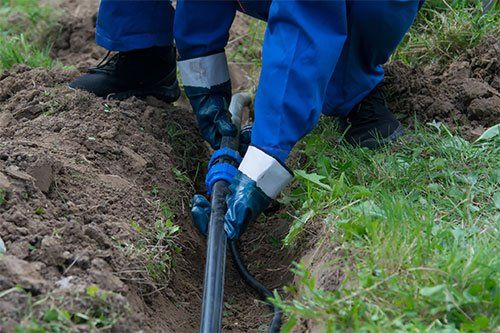The Effects of Rain on Your Plumbing
- By Admin
- •
- 11 Jun, 2019

If there is one thing that Floridians can count on, it's rain. Heavy rains can fall at almost any time of the year throughout the Florida region. These rains pose significant problems for homeowners looking to maintain the efficiency and structural stability of their homes.
Most of your plumbing system is located out of view, so you may easily overlook the potential damage heavy rains can cause to your home's plumbing system. Identifying the ways that rain can affect plumbing will help you better maintain your plumbing system in the future.
Increased Pressure on Buried Pipes
The main water line that feeds water from municipal pipes into your home is usually buried beneath a yard or driveway. This means that the condition of the main water line is affected by the condition of the soil surrounding the pipe. Heavy rains can result in an increase in the amount of pressure that your main water line must sustain.
Excess moisture in the soil turns dirt into mud. Mud weighs a lot more than dry dirt, so the weight of the soil above the buried pipe increases. This increased pressure can lead to a host of plumbing problems, including the cracking or bursting of the main water line itself.
You also need to worry about the water line shifting as the soil softens. Shifting can damage connection points and cause your main water line to spring a serious leak.
An experienced plumber will be able to help you identify any plumbing issues caused by heavy rains and make repairs to preserve the integrity of your home's plumbing system.
Backed-Up City Sewers
Residential properties are connected to city sewer systems, and these connections allow you to easily send water and waste down the drains in your home for processing. Unfortunately, these connections can become a source of weakness when heavy rains hit.
City sewer systems can become overwhelmed with the excess moisture being funneled into them during heavy rainstorms. Eventually, the sewer will become backed-up and unable to accept any additional waste. You might notice sewage backing up into your home when this occurs.
Exposure to sewage can be harmful, so you need to take preventative action to keep sewer backups at bay during rainy weather. A licensed plumber can install a backwater check valve in your plumbing system to prevent waste from moving back up through your pipes.
You should also ensure that all sewer trap plugs are fitted snugly into your house traps to create an effective barrier against sewage infiltration.
Overworked Sump Pump
Your home should be fitted with a sump pump to help you manage the excess moisture generated during heavy rains. Sump pumps safely discharge water that would otherwise flood a home's basement or foundation safely away from the property.
Heavy rains can cause your sump pump to work overtime to protect your home against flooding. This increases the risk of the sump pump overheating or getting burned out.
Take the time to have a plumber complete a thorough inspection of your sump pump before the next big rainstorm. Any problems with the sizing, pump capacity, or float switch of your sump pump can be addressed by the plumber to ensure the unit works efficiently to eliminate flood damage in your home.
Dealing with heavy rains is par for the course when you live in Florida. It's important to keep in mind that these heavy rains can take a toll on your home's plumbing system.
Contact Daytona Plumbing for more information on the unique relationship between rain and your plumbing. We can help you get your plumbing system ready to withstand the most severe rainstorm.Contact Us
We will get back to you as soon as possible.
Please try again later.






